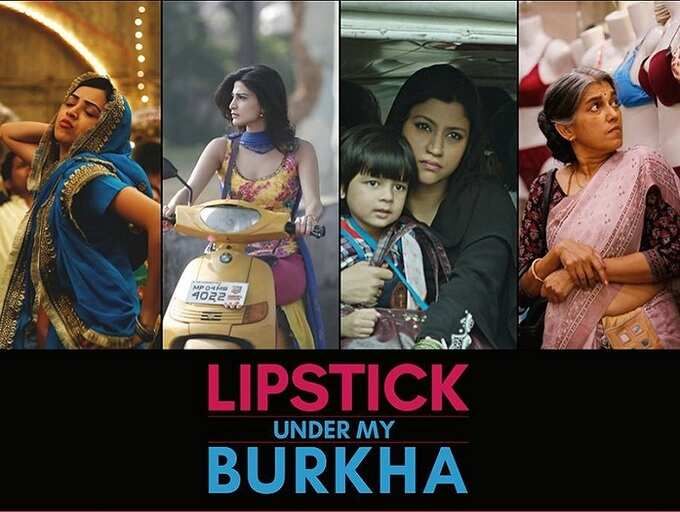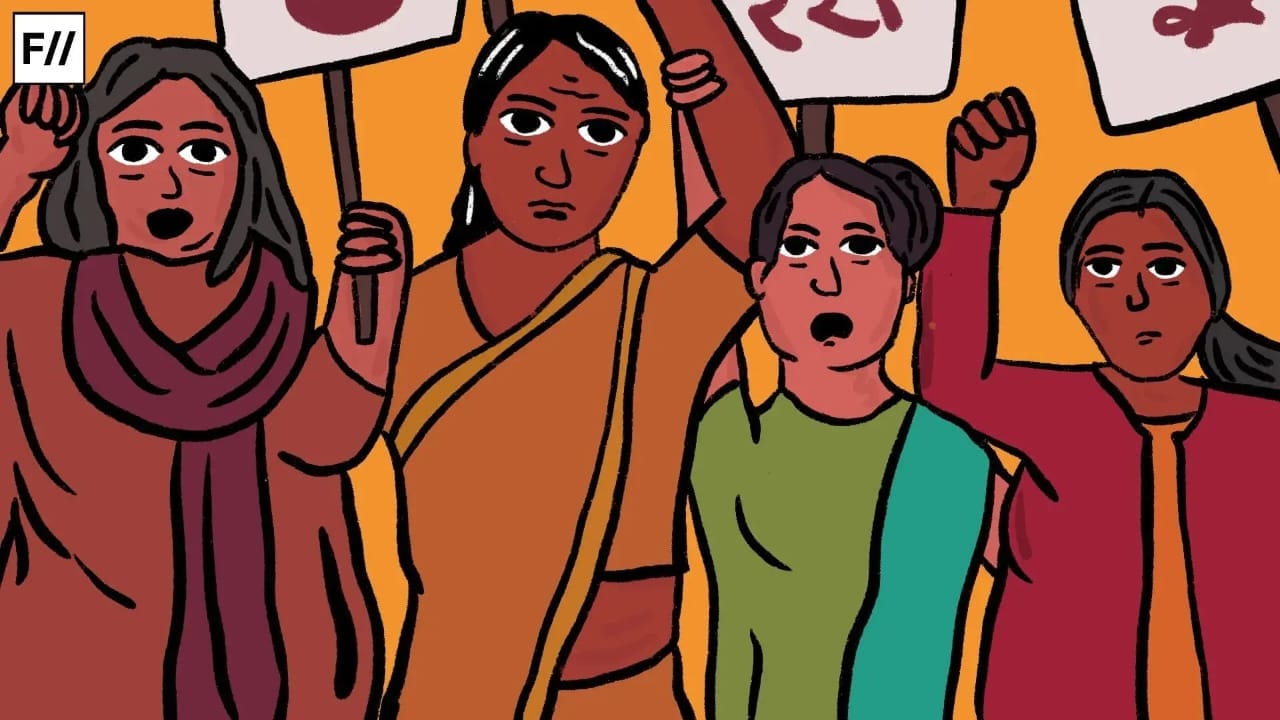Posted by Khushboo Upreti
At first glance, gender and family appear to be pretty straightforward: We are expected to perform our gender roles in accordance to the sex we were assigned at birth. Our family is meant to be our pillar of strength, a space for unconditional love and care. Reality however, is more convoluted than this. Gender is a social concept which becomes one of the central axes of socialisation and the basis for patriarchal power. As our primary site of socialisation, family then becomes the wagon of patriarchy.
Well seized of what the Social Action Project at PRIA wished to achieve, our first session tried to map out the broad contours of the project and unpack terms like gender, identity and socialisation which we considered to be the very backbone of the topic we intended to work on.
Normalising Gender and the Associated Performativity
At the outset, the social nature of gender was highlighted, with masculinity and femininity being grounded in society’s perception of an individual’s role in society. An idea essentially finding its genesis in society is gradually accepted and performed by us. This helps in normalisation of such constructed ideas and their elevation to the status of the ‘ideal’. Needless to say, this eventually leads to self-policing and policing of others.
That gender’s relevance is maintained through policing, often involuntary, became apparent when participants were asked if they had judged others for performing gender differently. From teachers almost reflexively asking boys to pick up the heavy stuff during functions in school to men taking a lead, ordering food and paying the bill when accompanied by a woman to men being innocuously mocked for indulging in self-care — the gendered connotations in our everyday interactions became obvious during the discussion.
That gender’s relevance is maintained through policing, often involuntary, became apparent when participants were asked if they had judged others for performing gender differently. From teachers almost reflexively asking boys to pick up the heavy stuff during functions in school to men taking a lead, ordering food and paying the bill when accompanied by a woman to men being innocuously mocked for indulging in self-care — the gendered connotations in our everyday interactions became obvious during the discussion.
Furthermore, by drawing attention to media’s role in reflecting and perpetuating these gender norms, one of the participants facilitated the realisation that while the medium may be value-neutral, it’s essential to be more reflexive towards the nature of narratives being disseminated and their underlying values. Patriarchy may date back to ages before but the media’s role in further entrenching its ideals is worth noting.
When Personal Identity Clashes with Social Expectations
If gender was a social construct, it was necessary for us to unpack the very process by which its norms get internalised by us. This is where socialisation and identity came into play. At its most basic, identity can be understood as our sense of self. Things get complicated however, when one considers the social influences ranging from family to peers to media which shape our sense of self. Personal identity also shares a somewhat uncomfortable relation with social identity which refers to the demeanour, traits and role society expects from us. Conflict arises when there’s a dissonance between the two. T
his was instantiated in the brief discussion on the movie ‘Lipstick Under My Burkha’ and the rancour it created. As observed by one of the participants, the hostility was rooted in society’s disapprobation of how these women conducted themselves in what was, at the end of the day, an intimate sphere of their lives, having a bearing primarily on their being.

How socialisation becomes problematic
Coming back to socialisation, problems arise because of unequal relations existing in the society. Consequently, the values which are passed on are likely to compromise the interests of some groups. Gender socialisation typifies this. Its invasive character is manifested in the grooming of kids from the very beginning in accordance with the roles they will eventually be expected to take up. This distinction is seen in the gendered nature of toys with ‘ghar ghar’, ‘kitchen kitchen’ for girls while boys play with action figures and cars.
Also read: How The Gendering Of Toys Hamper Skill Development In Children
Thus, as was mentioned by someone during the discussion, the underlying value system dictates differential standards for men and women. A ‘good woman’ for instance, would be someone who is more patient and adjusting. Aggression and competitive attitude are traits meant to be the preserve of men. What we observe in the family then colours our world view and becomes a part of our value system. As remarked by one of the participants, the heft of these social roles is such that marriage is viewed as an inevitability. A career woman wouldn’t be considered to be truly settled till the time she fits in the conventional imagination of a married woman with kids.
A ‘good woman’ for instance, would be someone who is more patient and adjusting. Aggression and competitive attitude are traits meant to be the preserve of men. What we observe in the family then colours our world view and becomes a part of our value system. As remarked by one of the participants, the heft of these social roles is such that marriage is viewed as an inevitability. A career woman wouldn’t be considered to be truly settled till the time she fits in the conventional imagination of a married woman with kids.
Albeit the hold of socialisation in identity formation, spaces for questioning and unlearning always exist. When probed on which experience has played this role in the lives of participants, responses varied from college to bouts of casual sexism which make one realise just how rampant the belief that men naturally possess some definite advantage vis-a-vis women still is. Such awareness and individual pushbacks are what gradually modify the norms of society.
Family vs. Career: Should this dilemma even exist?
The session closed with a discussion on the common perception that women have to make a choice between having a family and a fulfilling career. Such dichotomies were questioned, with a participant pointing out how such a dilemma was never posed to men. Furthermore, women who decided to pursue both were expected to put in double the effort in order to justify their choices and make things work. This obscures how the effort needs to be more collective than individual, in terms of provisions like flexible working hours, greater role of the father in upbringing of the child, etc.
Also read: Gendering Kids Clothing: More Than Just A Colour War
Moreover, even when a woman did choose one option over the other, participants mentioned the ‘damned if you do, damned if you don’t’ situation which is likely to come up. Thus, a housewife is likely to be derided by the progressive sections for having succumbed to the patriarchal dictates. Meanwhile, a single career woman is likely to be villainised for having abnegated the wifely and maternal responsibilities, supposedly innate to her as a woman. Ultimately, the centrality of choice in enabling conditions was flagged as crucial to the idea of women supporting other women.
This is the first in a series of articles based on a Social Action Project called ‘Consciousness Raising Sessions on ‘The Role of a Female in the Indian Household’. This was formulated by fellows with Participatory Research in Asia (PRIA)’s Youth-N-Democracy program. The Social Action Project aimed to connect with women in the age group of 19-26 years of age in order to introduce them to the idea of how unseemingly common everyday activities turn out to be deeply discriminatory.
Khushboo is a Master’s Graduate from Jawaharlal Nehru University. Having specialised in Political Science, she’s interested in issues of social justice and multiculturalism. She enjoys literature, early mornings and good conversations.
Featured image source: artoel.com
About the author(s)
We are a global centre for participatory research and training. For 39 years, PRIA has focused on empowerment of the excluded through capacity building, knowledge building, and policy advocacy. We work to make democracy work for all.






